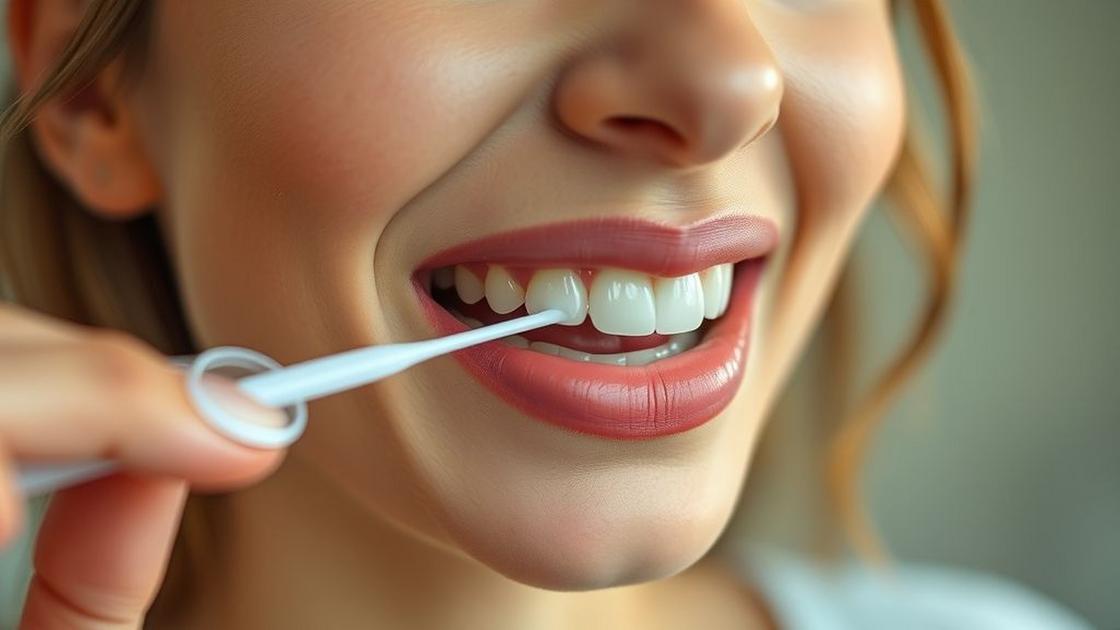Are you tired of enduring the sharp, nagging discomfort of tooth pain? Many women, especially those over 30, find themselves facing dental issues that can disrupt their daily lives. If you’ve been seeking ways to stop tooth pain at home naturally, you’re not alone. This article shares practical, effective techniques and remedies that can bring relief, allowing you to smile again without the burden of discomfort.
Understanding the Causes of Tooth Pain
Tooth pain can be a distressing experience, often signaling underlying issues that require attention. Common causes of tooth pain include:
- Cavities: When bacteria produce acids that wear down tooth enamel, leading to decay.
- Gum Disease: Inflammation and infection of the gums can lead to tooth sensitivity.
- Cracked Teeth: Damage to a tooth can cause intense pain, especially when chewing or biting.
- Abscesses: Infections at the root of the tooth can result in severe pain and swelling.
- Sinusitis: Sometimes sinus infections can mimic toothache, particularly in the upper teeth.
Recognizing the source of your pain is essential in treating it effectively and finding the right approach to relief.
Natural Remedies for Quick Relief at Home
When tooth pain strikes, reaching for natural remedies can provide immediate relief without the side effects of over-the-counter medications. Here are some remedies to consider:
- Cold Compress: Applying a cold pack to the outside of your cheek can help numb the pain and reduce swelling.
- Salt Water Rinse: Dissolving salt in warm water creates a natural disinfectant. Rinsing can help reduce inflammation and kill bacteria.
- Baking Soda Paste: Mixing baking soda with water to form a paste can help neutralize acidity in the mouth and relieve pain.
- Clove Oil: Known for its analgesic properties, clove oil can be applied directly to the affected tooth for relief.
These remedies are simple and can be done with items you likely have at home, providing comfort when tooth pain arises unexpectedly.
Herbal Solutions: Nature’s Painkillers
Herbs can also be powerful allies in combating tooth pain. Here are some herbal options worth exploring:
- Whitening Mint: Known for its soothing properties, mint can help with pain and freshen breath.
- Ginger Tea: Ginger is known for its anti-inflammatory properties and can be sipped as a tea for both relief and hydration.
- Turmeric Paste: Turmeric contains curcumin, which may help alleviate inflammation and pain.
- Garlic: This common kitchen ingredient has natural antibacterial properties that may assist in reducing pain.
Integrating these herbs into your routine can promote healing and provide comfort, connecting you more with nature’s solutions.
Effective Oral Hygiene Practices
Good oral hygiene is the cornerstone of preventing and alleviating tooth pain. Here are some essential practices:
- Brush Twice Daily: Use a fluoride toothpaste and brush your teeth at least twice a day to keep cavities at bay.
- Floss Daily: Flossing removes food particles and plaque between teeth, areas your toothbrush can’t reach.
- Regular Dental Visits: Visiting your dentist biannually helps detect issues early, preventing severe pain.
- Mouthwash Use: Antimicrobial mouthwashes can reduce oral bacteria, thus promoting better gum health.
By taking these small steps in your personal care routine, you can significantly impact your dental health and reduce the chances of pain.
Lifestyle Changes to Prevent Tooth Pain
Making conscious lifestyle choices can help prevent tooth pain from occurring in the first place. Consider these changes:
- Quit Smoking: Smoking affects gum health and is a significant risk factor for tooth loss.
- Limit Sugar Intake: Reducing sugary foods and drinks can prevent cavity formation and reduce acid attacks on teeth.
- Use Mouthguards: If you grind your teeth at night, consider using a mouthguard to protect your teeth.
- Manage Stress: Stress can increase teeth grinding and gum issues; practice relaxation techniques like yoga or meditation.
Embracing a healthier lifestyle not only benefits your teeth but also your overall well-being, helping you lead a more vibrant life.
When to Seek Professional Help
While many toothaches can be managed at home, knowing when to seek professional help is crucial. Consider consulting a dentist if:
- The pain persists longer than a few days.
- You experience swelling or fever.
- There’s a bad taste in your mouth or discharge.
- Your pain is causing difficulty eating or sleeping.
Understanding when to seek help ensures your health remains a top priority, allowing for timely intervention and relief.
The Role of Diet in Dental Health
Your diet plays a significant role in maintaining dental health. Here are dietary tips for promoting healthy teeth:
- Dairy Products: Foods like cheese, yogurt, and milk contain calcium, which strengthens teeth.
- Fruits and Vegetables: Crunchy fruits and vegetables can naturally clean teeth and stimulate gums.
- Stay Away from Acids: Limit citrus fruits and sodas which can erode enamel.
- Green Tea: Rich in antioxidants, green tea may help reduce inflammation and promote oral health.
Focusing on a balanced, nutritious diet will pave the way towards better dental health and vitality.
Using Essential Oils for Tooth Pain Relief
Essential oils can provide a natural remedy for tooth pain. Here’s how to utilize them safely:
- Tea Tree Oil: Known for its antibacterial properties, a diluted solution can be used as a mouth rinse.
- Peppermint Oil: This oil can provide a cooling effect, easing discomfort when applied topically.
- Lavender Oil: Known for its calming properties, it may help alleviate anxiety linked to dental pain.
Always dilute essential oils with a carrier oil before applying them to avoid irritation, ensuring a safe, soothing experience.
The Importance of Staying Hydrated
Staying hydrated is fundamental for your overall health, including oral health. Water helps:
- Wash away food particles.
- Keep saliva production up, which is essential in neutralizing acids in the mouth.
- Reduce bad breath by flushing out bacteria.
Make drinking water a priority throughout your day, supporting both hydration and dental well-being.
Maintaining a Positive Mindset for Healing
Your mindset plays an essential role in the healing process. Here’s how to cultivate a positive outlook:
- Practice Gratitude: Focus on what you’re thankful for to shift your mindset toward positivity.
- Engage in Positive Affirmations: Affirmations can boost your mood and encourage a healing mindset.
- Connect with Others: Share your experiences with friends or support groups to feel understood and less isolated.
By nurturing a positive mental environment, you empower yourself to face challenges head-on and foster a more joyful healing journey.






